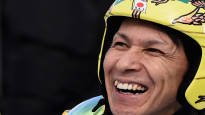Ski jumper Noriaki Kasai makes history on Saturday. Kasai, who will turn 52 in June, will become the oldest ever competitor in the World Cup of Vaulting.
On Saturday, Kasai will break his own record from four years ago. From time to time, the oldest person who competed this season as well is the 42-year-old Swiss Simon Ammann.
Kasai has improved his level since the beginning of the year. Three weeks ago, he was eleventh in Sapporo in the Continental Cup (second level of high jump) competition.
More than 20 years ago, however, the whole career was at stake.
Kasai was thought to be gone after the Olympics in Salt Lake City that went wrong in 2002. At that time, a Finn was appointed as Kasai’s coach Pekka Niemelä. He started as the coach of Team Tschuyia represented by Kasai.
Finnish-Japanese collaboration began, which Kasai including saved his career. However, the beginning was not easy.
Ruka’s camp in the summer of 2002 changed everything
Only two years older than Kasai, Niemelä immediately ran into Japanese culture and the strict age hierarchy. Niemelä’s actions were investigated very carefully.
According to Niemelä, in the first camps, the younger ones started going past Kasai. According to the Finnish coach, they absorbed things faster than Kasai, who was in his thirties at the time and was a multiple medalist in the prestigious competition.
One moment changed everything, a camp in the summer of 2002 in Ruka. Kasai came to knock on Niemelä’s hotel room door.
– He hadn’t taken advice since early summer. Kasai was very determined and very precise. He was quite withdrawn, Niemelä recalls.
The meeting in the hotel room was not leaked to anyone. Niemelä and Kasai kept the matter only known to each other. They watched videos of the team’s star jumps.
– He thought about it overnight. We went to training. I signaled. He came to the mound. Jump failed. I thought it might not. This is about the most important man. I already had time to think about what kind of feedback there will be, Niemelä describes.
However, Kasai’s reaction was one of surprise as he hurtled back up.
– Noriaki said that “Pekka, I know what you mean. Let me try again,’ Niemelä recalls.
Next, Kasai flew to no less than 151 meters, i.e. the bottom of the mountain in Suurmää of Ruka. The whole team cheered.
Niemelä and Kasai made radical changes to Kasai’s equipment, bindings, and overall jumping technique.
The very next winter, Kasai celebrated three World Championship medals in Val di Fiemme. Silver for the team man and bronze for the big man and normal man.
Mother’s death shook me, but then came the smile everyone knew
In a documentary about himself, Kasai has told how he used to do sports to overcome his sorrows. One of them was the death of my own mother in a fire. The mother of the Japanese ski jumping star died the same year Kasai turned 25.
However, with Niemelä, the Japanese found freedom in what he did. The athlete who previously had a strict and serious approach to sports changed.
The consequences are known. The oldest pole vault Olympic medalist and World Cup competition winner of all time.
The most participations in the World Championships in Nordic skiing, the World Championships in Aeronautics and the Winter Olympics.
Kasai is now competing with the world’s best this weekend at the age of 51.
– You can’t help but admire the man’s passion for the sport. After all, it has required an awful lot of fire and commitment to be able to practice such a sport and still compete at that level. One can only take my hat off. A tough guy, Niemelä says.
It has been more than 35 years since Kasai’s first World Cup race. The Japanese legend has seen a lot. Won the first race Matti Nykänen. During the leap years, he was responsible for, among other things Janne Ahonen. On this day, Finnish national team athletes have also competed with Kasai.
– He has shown an incredible ability to adapt to changes in technology, equipment and the whole sport. It’s a really tough thing, Niemelä reminds.
In Japan, experience and age are highly valued. Niemelä sees that as one of the big reasons why Kasai has been able to continue his career.
– The general appreciation is unfathomably hard. Old age is not thought of negatively. Japanese ski jumpers are big stars. Even in their old age, they bravely go to the games. They will be watched. “Kamikaze” Kasai is highly regarded throughout the country, Niemelä estimates.
In addition to his strong passion, the continuity of Kasai’s career has been made possible by the Japanese hill jumping system. So, Kasai joined the ranks of the Hyppää business team Team Tschuyia with a monthly salary. Tschuyia is a large construction company in Japan.
– If there is a setback, the career does not end immediately. The income level does not decrease. It won’t be a big deal if you get hurt, Niemelä describes.
